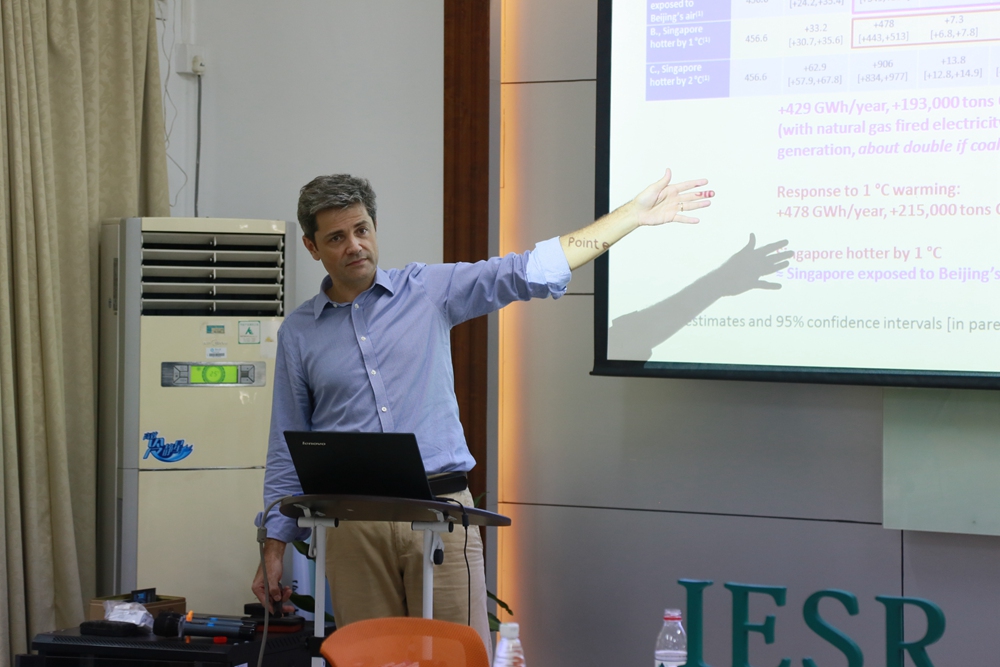2019年4月26日,新加坡国立大学副教授Alberto Salvo作客IESR第145期SEMINAR,分享了题为“Local Pollution Drives Global Pollution: Emissions Feedback via Residential Electricity Usage”的研究报告。

副教授Alberto Salvo
This study links two major societal phenomena and shows that this link matters. First, home energy demand is increasing sharply as incomes rise in the urbanizing developing world. Second, particle pollution afflicts much of the world’s rising middle classes. I access longitudinal data for Singapore, a newly affluent and leading Asian city, to show that air quality is a key driver of residential electricity demand. Electricity use grows by 10% when PM2.5 rises by 100 µg/m3. Counterfactually, blowing 1 year of Beijing’s ambient air over Singapore increases electricity use by 10% and annual expenditure by US$ 163 for a household with air conditioning (AC) at home. Singapore uniquely combines rich-country defensive capital stocks, such as AC, with routine developing-country PM2.5 levels. Local pollution control has the co-benefit of reducing electricity generation, via household demand, and mitigating carbon emissions. Defensive expenditure may also exacerbate health inequalities, as a public health debate suggests.
